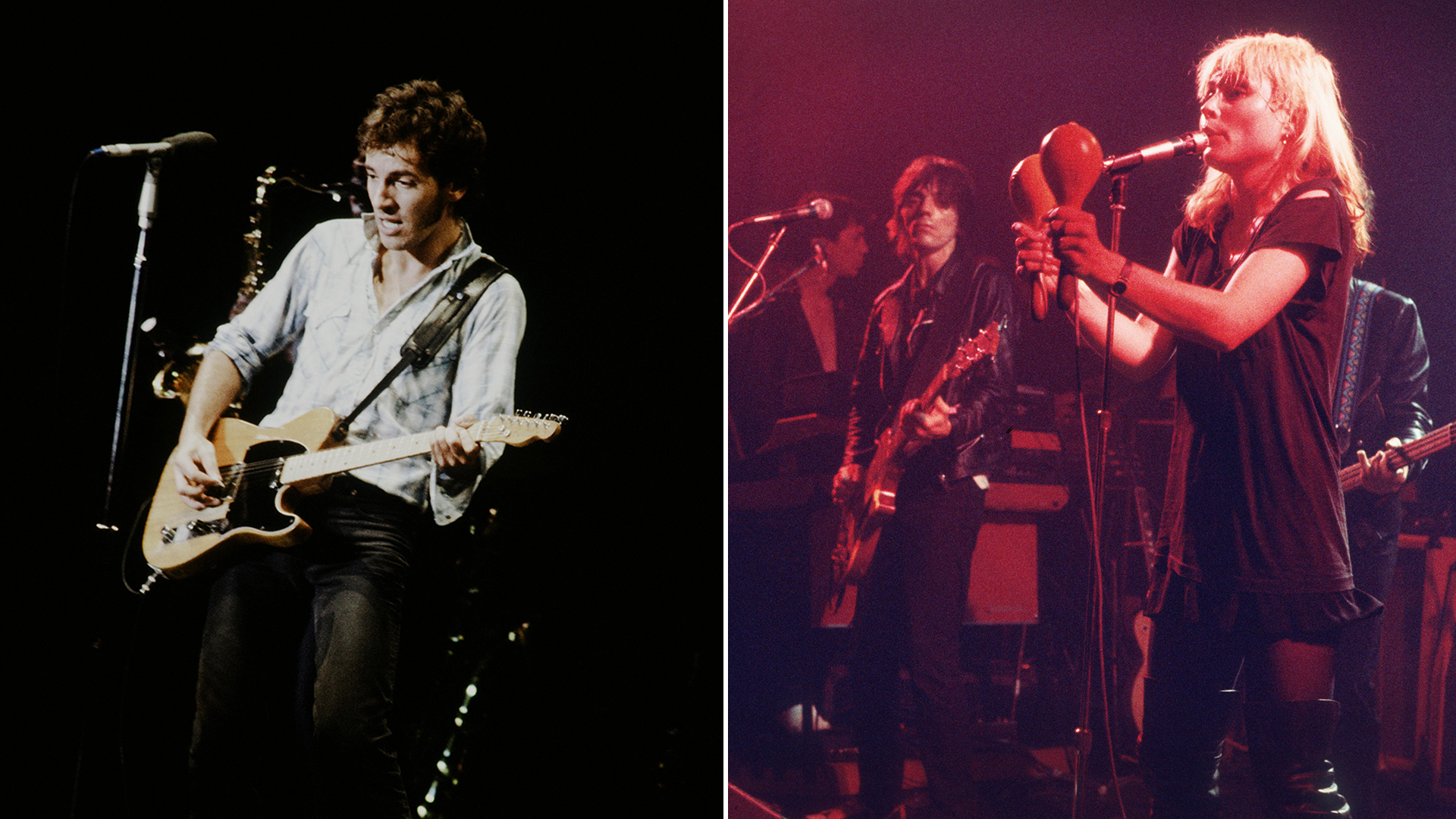“Bruce Springsteen was in the next studio… He had a Gretsch Country Gentleman, and I asked him if I could borrow it”: How a loaner from The Boss powered the iconic spaghetti western line in Blondie’s Atomic
Former Blondie guitarist Frank Infante has revealed that he recorded the twanging lick using a Gretsch belonging to the blue collar rock icon

Former Blondie guitarist Frank Infante has revealed that one of the New York band’s most famous guitar lines, Atomic, was recorded on an electric guitar loaned to him by Bruce Springsteen.
The track is famous for its descending spaghetti western-inspired twanging guitar lick (B G Gb E, if you fancy it) – performed on record by Infante and Chris Stein and produced by long-running collaborator Mike Chapman.
Now, in a new interview with Guitar World, Infante reveals there was another big name who lent a hand – or, rather, a Gretsch guitar – when it came to shaping the sound of the track.
The story likely dates back to 1979, when both Blondie and Springsteen were recording at The Power Station in Hell’s Kitchen, New York. Blondie were working on their fourth album, Eat to the Beat, under pressure to deliver a follow-up to the immensely successful Parallel Lines.
Springsteen, meanwhile – who is primarily known for his association with the Fender Telecaster – would have been busy working on the double-album epic that would cement his place as the definitive king of heartland rock: The River.
“Bruce Springsteen was in the next studio, so we’d see each other – ‘Hey, how you doin?’’” Infante tells Guitar World.
“He had a Gretsch Country Gentleman, and I asked him if I could borrow it. That’s what I used on Atomic. Chris and I play the main riff, but I do the whammy bar part at the end of it. Then when you hear Debbie [Harry] singing, ‘Take me tonight,’ that’s me doing all the other stuff.”
All the latest guitar news, interviews, lessons, reviews, deals and more, direct to your inbox!
It might not quite be up there with supplying Patti Smith with Because the Night, but it is another example of The Boss’ tangential hand in shaping the post-punk period.
Elsewhere in the interview, Infante addresses his role within Blondie, taking the chance to untangle some of the confusion (and frustration) around his contributions to the group’s sound and recordings.
“There’s a lot of misinformation out there,” says Infante. “[For instance], if you look on Wikipedia, it says that the band did Plastic Letters as a four-piece and that Chris Stein played guitar and bass. No – I played guitar and bass. I did all the bass.
“My involvement with the band is always called into question. I saw this video of somebody breaking down Heart of Glass. The guy said, ‘And here’s Chris Stein’s guitar part.’ I was like, ‘No, that’s my guitar part.’ That kind of thing’s been happening for years.”
To read the full interview with Infante, in which he revisits his classic riffs and solos on One Way or Another, Heart of Glass, Call Me, Rapture, and, of course, Atomic, pick up the April 2024 issue of Guitar World over at Magazines Direct.

Matt is Deputy Editor for GuitarWorld.com. Before that he spent 10 years as a freelance music journalist, interviewing artists for the likes of Total Guitar, Guitarist, Guitar World, MusicRadar, NME.com, DJ Mag and Electronic Sound. In 2020, he launched CreativeMoney.co.uk, which aims to share the ideas that make creative lifestyles more sustainable. He plays guitar, but should not be allowed near your delay pedals.

